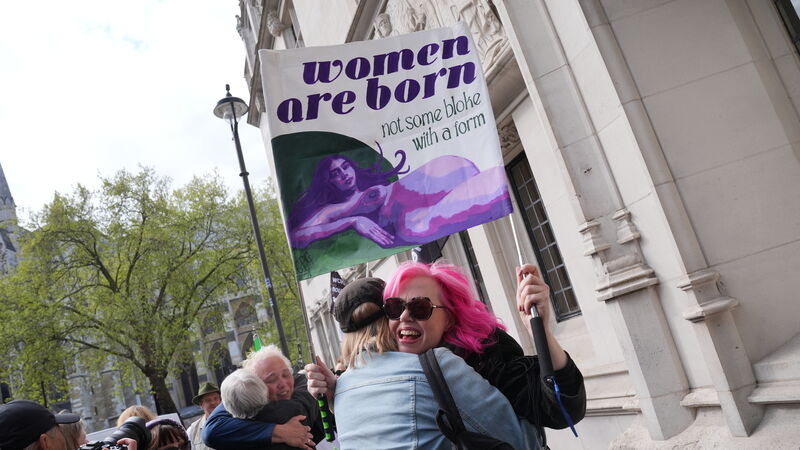Trans women with gender certificate can be barred from single-sex areas – UK court

Transgender women with a gender recognition certificate can be excluded from single-sex spaces if “proportionate”, the UK Supreme Court has ruled as the British government said the decision brought “clarity and confidence” for women and service providers.
Campaign group For Women Scotland (FWS) brought a series of challenges – including to the UK’s highest court – over the definition of “woman” and whether someone with a gender recognition certificate (GRC) recognising their gender as female should be treated as a woman under anti-discrimination legislation.











